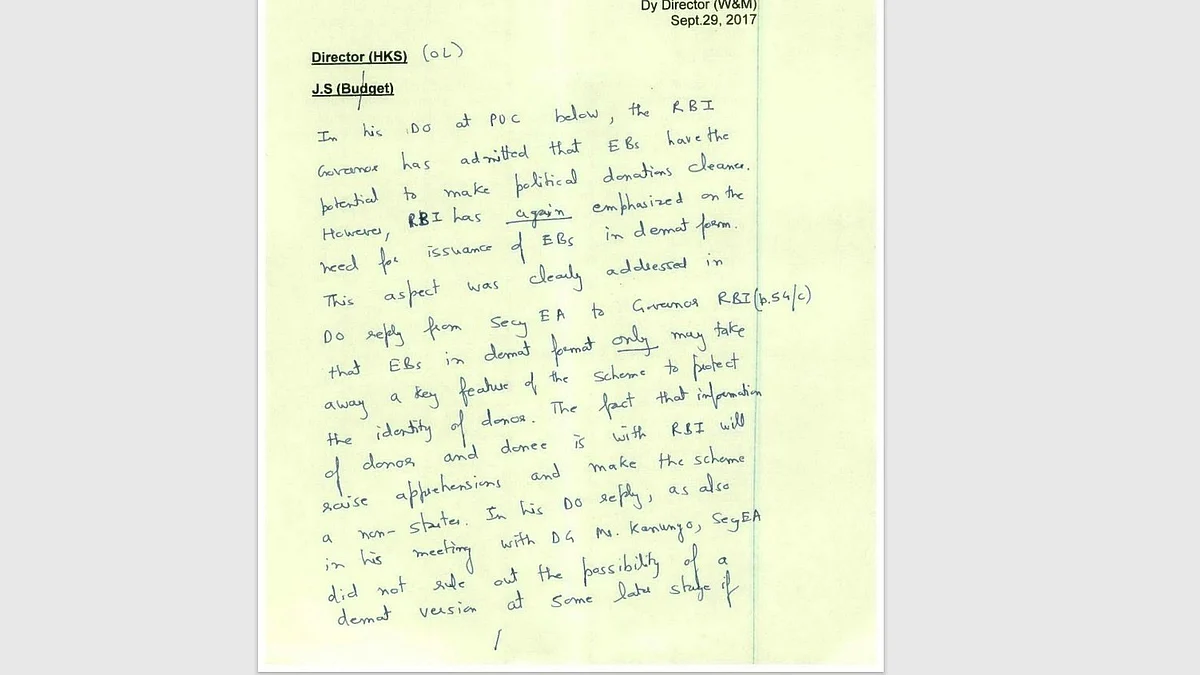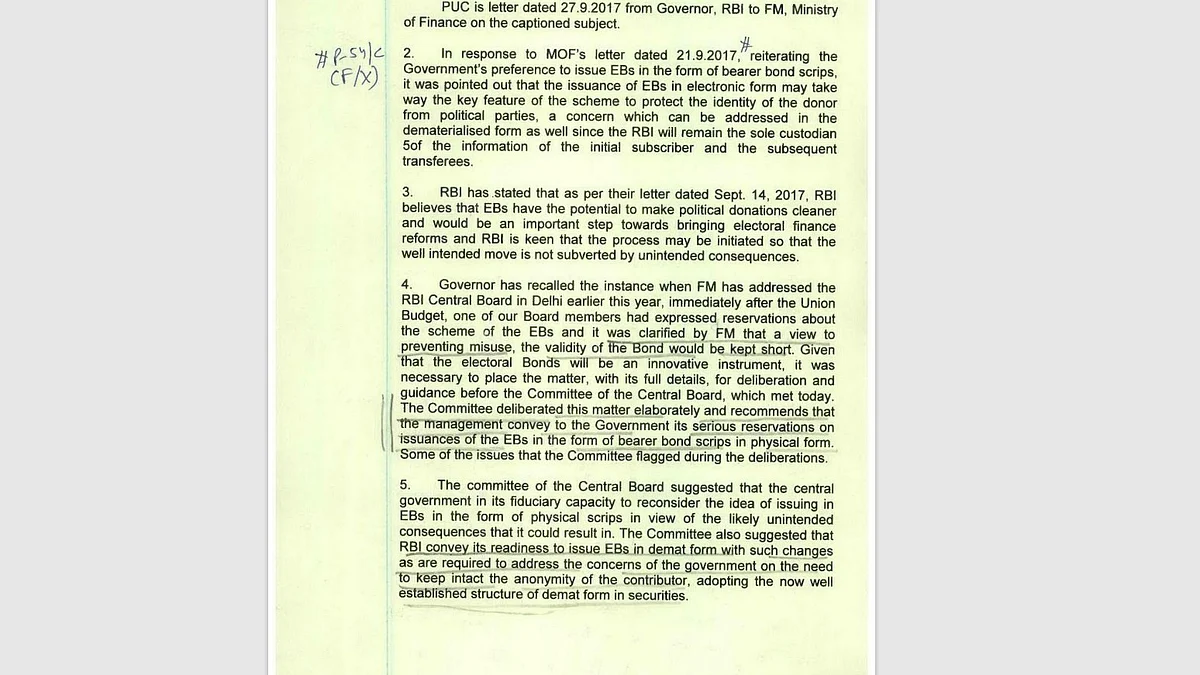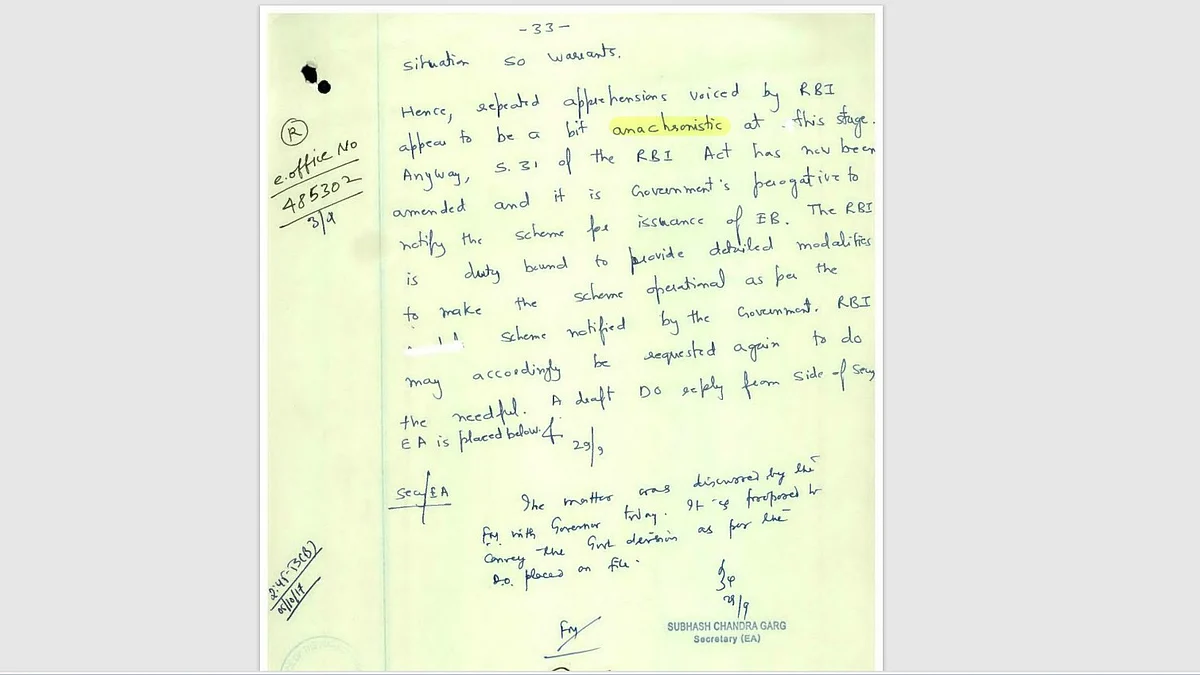Why did govt dismiss RBI reservations about electoral bonds?
Until 28 Jan 2017, the Union govt had no intention of taking the RBI into confidence about the electoral bond scheme, even as the FM's budget speech for 1 Feb was ready and printed

On 28 January 2017, a Saturday, the Union finance ministry sent a five-line email to the governor of the Reserve Bank of India, seeking the apex bank's approval of the electoral bond scheme that the government was readying to spring on an unsuspecting nation.
The last-minute mail was necessitated by a babu in the ministry having discovered — rather late in the scheme of things — that under the RBI Act, the central bank alone can issue currency, cash, bearer bonds and promissory notes.
The RBI’s swift reply dated 30 January asserted that the scheme was a bad idea and that the RBI, not the government, was the sole issuer of such currency and should have the final say.
The reply also pointed out the many loopholes in the scheme, as well as the fact that the anonymous bonds could easily be traded by foreign companies and governments. There would be no need to pay commission on defence deals, for instance; electoral bonds could be traded more easily.
The objections were, of course, overruled. The government pointed out that the budget speech was already printed. The RBI board was hurriedly summoned to assemble in New Delhi and chivvied into consenting, with the government assuring it that 'necessary safeguards' would be in place.
The RBI offered to handle the scheme itself, and issue the bonds. It insisted that the bonds should be in the demat (electronic) format and not in printed form. Once again, the government cited paucity of time, and assured that it was not ruling out introducing the demat format in future, if it became necessary.
Official records suggest that the RBI repeatedly rang alarm bells and tried to persuade the government to issue the bonds in demat format, which would have made it easier to trace transfers. The government refused, maintaining that entrusting the task to RBI and issuing the bonds in demat format would "defeat the purpose"!
In a communication sent to the finance minister and the finance secretary on 27 September 2017 (see image), the RBI governor, after making placatory noises about the RBI agreeing with the government on the need to reform the system of party funding and allowing that the scheme had the potential to clean up the system, made the following important points (emphases ours):
The Central Board of the RBI had deliberated on the matter at length and recommended that the management convey to the government its serious reservations on the issuance of electoral bonds in the form of bearer bond scrips in physical form.
The RBI board urged the central government to reconsider the idea and reiterated that issuing the bonds in the physical form could have unintended consequences.

The board suggested that the RBI convey to the government the RBI's own readiness to issue the bonds in the demat (electronic) format, with such changes as were required to address the concerns of the government regarding the urgency of the scheme and keeping the anonymity of donors intact.
The board also agreed to incorporate a facility for multiple transfers before the proceeds were eventually credited to a political party’s designated bank accounts.

In a handwritten noting on file (see image), the then secretary (economic affairs) Subhash Chandra Garg barely concealed his annoyance. “Repeated apprehensions voiced by RBI appear to be a bit anachronistic at this stage,” Garg noted, before adding that section 31 of the RBI Act had been amended already and in any case, it was the government’s prerogative to notify the scheme.
Curiously, the noting also mentions that “the fact that information of donor and donee is with RBI will raise apprehensions and make the scheme a non-starter”.
Five years after the scheme was launched, there is no evidence that either the government or the RBI have carried out an audit to figure out whether the apprehensions voiced by the central bank have been vindicated.
Perhaps an audit is not even possible, given the opacity of the scheme.
The government can, however, be asked by the Constitution Bench of the Supreme Court to answer whether it has examined the operation of the scheme, and why it is convinced that the RBI’s apprehensions were misplaced.
Follow us on: Facebook, Twitter, Google News, Instagram
Join our official telegram channel (@nationalherald) and stay updated with the latest headlines
